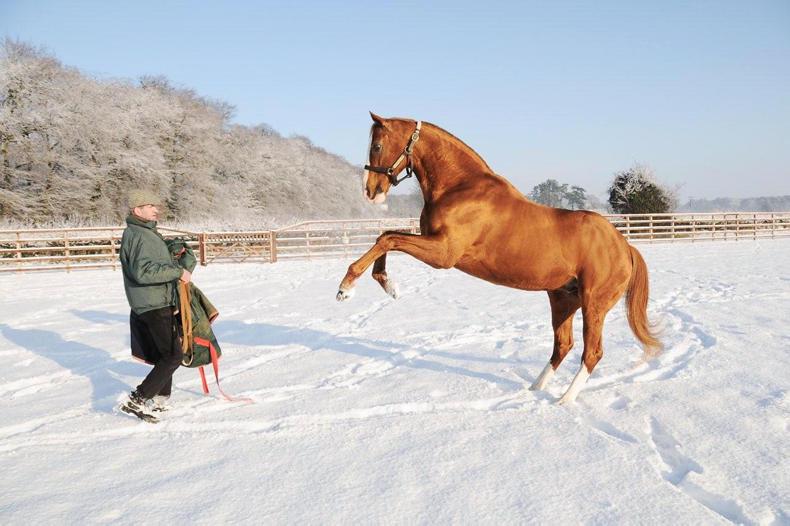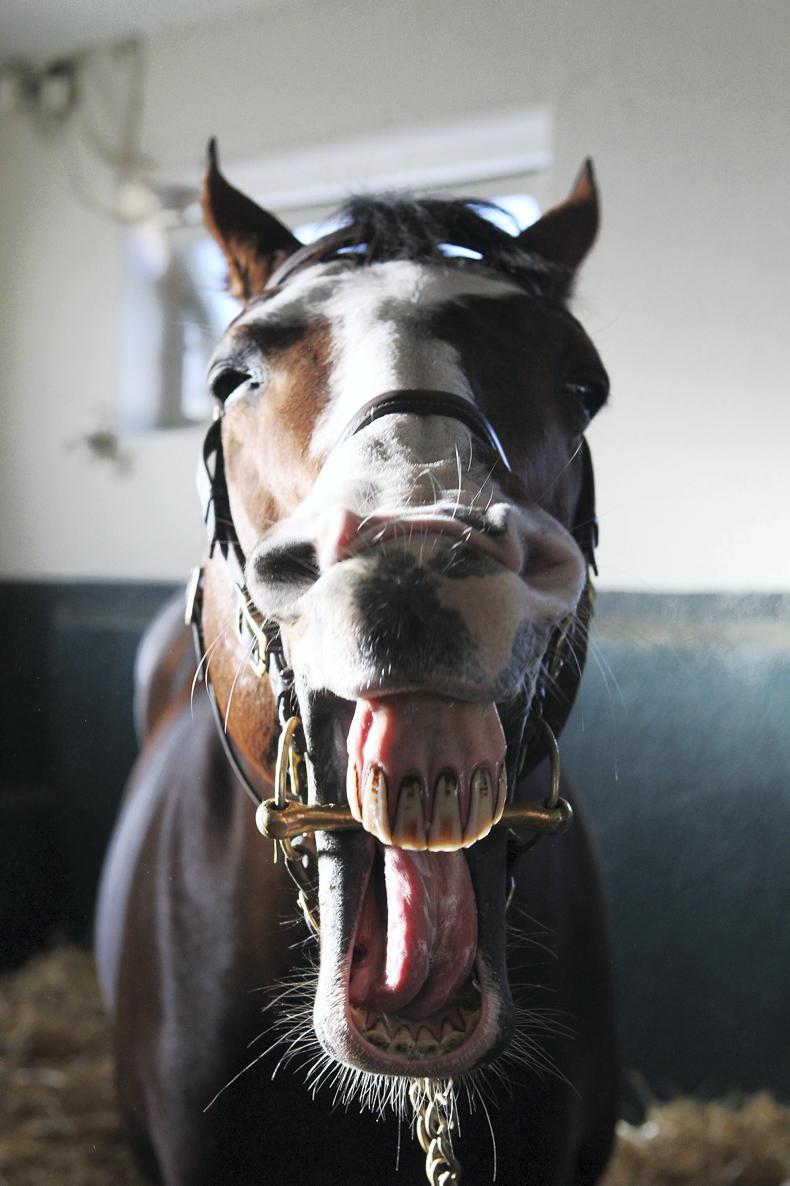THE more we can mimic natural conditions, the healthier and happier our horses should be. In Ireland this is best achieved by allowing them exercise as a settled social group in an hazard-free, mixed-grazing area. In wet winter conditions complications around the inter-related issues of shelter and feeding arise.
As per ourselves and our homes, good insulation helps to cut down on the need for feeding and fuel. It might be best, as being most natural, to provide shelter from the worst of our weather via hedges that horses can safely browse. But man-made alternatives (field-shelters, walls, buildings and rugs) are often essential and readily available.
If we confine horses such that they cannot exercise and escape draughts - beware the freezing effects of cold air swirling low. Equally, avoid overdoing the wash-and-groom effort– this strips coats of valuable insulation (oil), as does clipping. This latter might be necessary in horses working hard for their living; if so, replace hair with rugs. In their many modern guises these provide insulation, water-proofing and protection. Always check them, and under them, daily – horses chew them; straps catch on objects and animal parts; and parasites like the cozy conditions underneath!
But do leave hair where:
Horses need access to a continuous supply of fresh, clean water – this truly is a basic need. And their digestive tract is designed to manage a nearly continuous supply of high-fibre feed not the occasional bucket of concentrates. Fodder may, of course, be supplemented with a well-regarded, well-balanced horse mix, but this must be matched to the animals’ additional needs if any –
Obesity
Exposure to the elements in severe weather can cause needless weight-loss – heat loss is energy lost. But obesity is also a health issue – excess fat places unnecessary strain on any horse’s metabolism and skeleton. It can be harder to get 50kg off an obese equine safely than put it on a skinny one! So don’t feed-and-rug-up fat native ponies because you ‘feel sorry for them’ or ‘it keeps them looking well’! Let them avail of any excess of god-given insulation before spring springs anew.
Preventative health care is money better spent:
Individual, poorly ventilated-and-insulated, dank, dark stables with no room to move or escape draughts and fumes make for poor living conditions. Hedges, field shelters, group living, well-maintained rugs, a dry place to lie, ad lib forage and a hazard-free space to exercise provide a much healthier alternative.


 This is a subscriber-only article
This is a subscriber-only article
 It looks like you're browsing in private mode
It looks like you're browsing in private mode










SHARING OPTIONS: